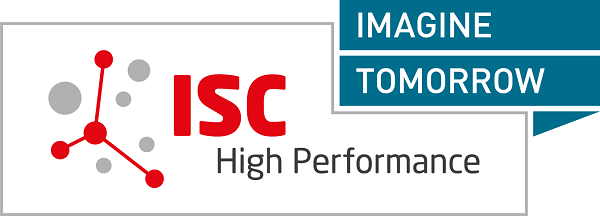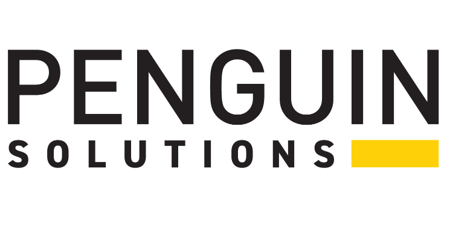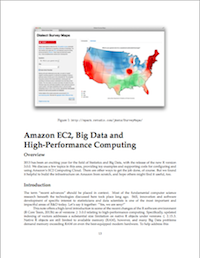HAMBURG – ISC 2023 has announced Tuesday and Wednesday (May 23 and 24) conference keynotes. ISC 2023 will be held at the Congress Center Hamburg from May 21 – 25.
The Tuesday keynote will be delivered by Google Principal Engineer Dr. Valentina Salapura, who will sketch out the emerging dynamic between the hyperscaler and HPC ecosystems. On Wednesday, Professor Dr. Thomas Sterling of Indiana University, and Professor Dr. Estela Suarez, of the Juelich Supercomputing Centre will recap the past year in HPC and offer predictions about its future.
Tuesday’s keynote by Dr. Salapura will bring her perspective on how the escalating demand for enormous amounts of cloud-based compute power is bringing supercomputing technologies into hyperscale data centers. AI, as well as other commercial workloads requiring large amounts of data and compute power, are the main drivers of this demand, having a profound effect on the technologies employed by big cloud providers.
Heterogeneous computing, accelerators, and GPUs, which until recently were technologies mainly confined to HPC, are now being employed at scale by major tech companies. These same companies are pursuing their own custom chips and systems along the same lines and are developing software that can tap into all this powerful new hardware. In the process, both the hyperscale cloud and HPC domains are transformed.
Salapura’s expertise on these topics stems from her work at Google, AMD, and IBM. At Google, where she is currently employed, she focuses on system architecture for cloud and edge computing. Before that, she worked on distributed computing and supercomputing at AMD Research. Before joining AMD, Dr. Salapura was a system architect and IBM master inventor focusing on cloud computing resiliency for several IBM cloud offerings. Her IBM Research stint also included working as a Blue Gene program’s computer architect.
Wednesday’s keynote will feature Professor Thomas Sterling’s perennial talk highlighting the most crucial HPC-related news and events since last year’s conference. The 2023 rundown, though, will offer a couple of new twists: To begin with, this year, Sterling will be joined by Professor Estela Suarez, a research group leader at the Juelich Supercomputing Centre, who will be a co-presenter for the talk. Also, in addition to delivering a retrospective of the year just past, Sterling and Suarez will offer a peek into the future of HPC.
Some of this future has already been foreshadowed. With Moore’s Law fading and artificial intelligence workloads coming to the fore, HPC engineers and practitioners are increasingly adopting more exotic hardware, especially heterogeneous ones that use tensor accelerators, AI accelerators, ASIC-based processors, and even neuromorphic devices. As noted in Tuesday’s keynote, some of this technology is being developed and commercialized by big cloud providers, who now require such HPC-capable hardware for AI and other demanding workloads. At the same time, cloud computing is becoming a more common delivery system for HPC.
Sterling is uniquely equipped to bring such wide-ranging topics into focus. Since receiving his Ph.D. from MIT as a Hertz Fellow in 1984, he has engaged in applied research in parallel computing system structures, semantics, and operation in industry, government labs, and academia. He is best known as the “father of Beowulf” for his pioneering research in commodity/Linux cluster computing, for which he shared the Gordon Bell Prize in 1997. He has also co-authored the introductory textbook, “High Performance Computing,” published by Morgan-Kaufmann in 2018. He is currently a Full Professor of Intelligent Systems Engineering at Indiana University (IU), serving as Director of the AI Computing Systems Laboratory at IU’s Luddy School of Informatics, Computing, and Engineering.
Estela Suarez brings a contemporary perspective to the field, focusing on HPC system architectures and codesign. As the European DEEP project series leader, she has driven the development of the Modular Supercomputing Architecture, including hardware, software, and application implementation and validation. Additionally, she leads the codesign and validation efforts within the European Processor Initiative. Her current position is Research Group Leader at the Juelich Supercomputing Centre, which she joined in 2010. She is also a Professor of High Performance Computing at the University of Bonn. Suarez holds a Ph.D. in Physics from the University of Geneva and a Master’s in Astrophysics from the University Complutense of Madrid.
As announced previously, Professor Dr. Dan Reed will kick off the conference with his opening keynote on the post-Moore environment and the technical and financial challenges the HPC industry faces, ending his talk by sharing ideas on how the HPC industry can overcome these difficulties.
Early-Bird Registration
Attendees who register by April 19 qualify for the early-bird rates, which provide considerable savings. ISC 2023 will be held in person, offering rich on-demand content to attendees who will join the event remotely.




